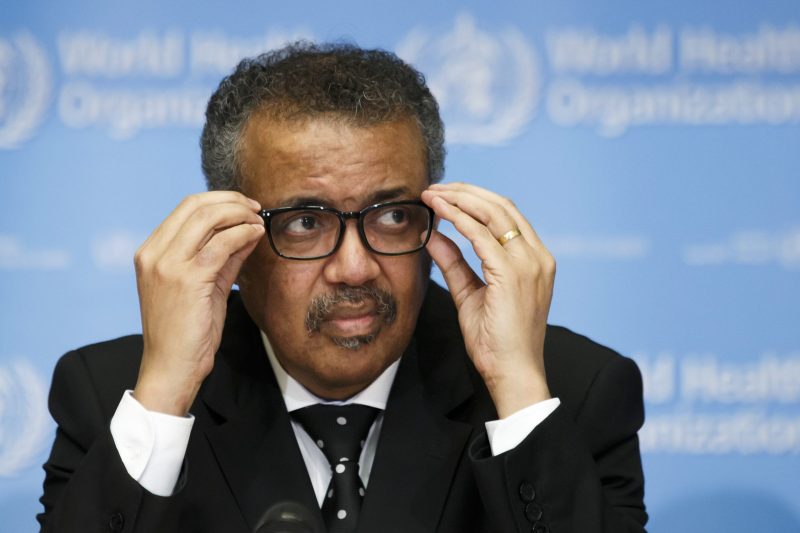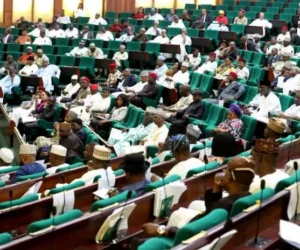The Director-General of the World Health Organisation (WHO), Tedros Ghebreyesus, has warned that the public health excellence of the US Centres for Disease Control and Prevention (CDC) must be protected.
In a post on X on Sunday, Mr Ghebreyesus described the CDC as a global centre of excellence whose practices have inspired the establishment of similar public health bodies around the world.
“When I was Ethiopia’s Health Minister, I sent a team to Atlanta to learn from the US CDC, and a significant part of what the Ethiopian Public Health Agency does is based on these best practices,” he said.
“The establishment of the Africa CDC, which I proposed at the African Union summit in Abuja in 2013 when I was Foreign Minister, was also inspired by the US CDC. Through global cooperation, many countries have not only learned from the US CDC, but they have also chosen to use the name ‘CDC’ for their national institutes.”
Crisis at US CDC
WHO’s comments come as the CDC grapples with leadership instability, mass resignations, and threats of funding cuts.
On 28 August, the BBC reported that CDC Director Susan Monarez was forced out of office just a month after her Senate confirmation, amid clashes with the US Health Secretary, Robert Kennedy Jr, over vaccine policy.
The White House said she was removed because she was “not aligned with the president’s agenda.”
She has since been replaced by Jim O’Neill, a former Silicon Valley investor and deputy to Mr Kennedy.
Ms Monarez’s lawyers, however, described the dismissal as illegal, alleging she was targeted for refusing “to rubber-stamp unscientific, reckless directives.”
At least three senior leaders reportedly resigned in protest, including the agency’s Deputy Director, Debra Houry; Lead on Emerging Infectious Diseases, Daniel Jernigan; and Vaccine Head, Demetre Daskalakis.
NBC News also reported the departure of Jennifer Layden, who led public health data and technology.
Experts concern
The American Society of Tropical Medicine and Hygiene (ASTMH), in a statement on 4 September, expressed “deep concern” over the leadership crisis, recent layoffs, and a US House of Representatives proposal to slash CDC funding by 20 per cent.
“Leadership instability and the departure of experienced public health professionals threaten to undermine the agency’s mission at a time when strong, evidence-based guidance is needed more than ever,” ASTMH warned.
“Public health must remain rooted in science. The politicisation of scientific guidance — whether implicit or explicit — erodes public trust, weakens the ability to respond effectively to emerging threats, and ultimately puts lives at risk.”
Mr Ghebreyesus also noted in his post that the WHO has enjoyed a close and longstanding partnership with the CDC, giving the US access to global health data and outbreak alerts, while enabling other countries to benefit from American science.
“No institution is perfect, and continued improvements are always needed to make sure the latest science and evidence are applied to emerging challenges in real time. But the work of the US CDC has been invaluable and must be protected,” he added.
More concerns
The disruption at the CDC has raised fears about US’s readiness to handle infectious disease outbreaks.
ABC News reported on 28 August that the sudden departures have left “the whole chain of command disrupted,” quoting Georges Benjamin of the American Public Health Association.
Former CDC Principal Deputy Director, Anne Schuchat, told the Associated Press that the crisis could affect essential services, from outbreak surveillance to water and food safety.
READ ALSO: EDITORIAL: Why federal lawmakers don’t deserve upward pay review
“If people are doing well and healthy, it’s probably partly because of the CDC,” Ms Schuchat said.
The turmoil also comes against the backdrop of US President Donald Trump’s January executive order withdrawing the country from the WHO.
Justifying the withdrawal from the WHO, Mr Trump cited what he called the inappropriate political influence of member states on the global body that is about 20 per cent funded by the US.











